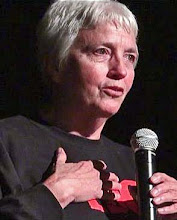
Believing is all a child does for a living. Kurtis Lamkin
The just-released report “Economic Crisis Hits Home: The Unfolding Increase in Child and Youth Homelessness” documents the painful reality of a long-ignored, worsening dilemma facing millions of kids. And it offers deliberate, well-considered solutions. But let’s not analyze yet another report.
Boiled down, this report verifies this nation’s huge increase in the number of homeless families and unaccompanied youth simultaneous to the tumultuous economic meltdown in real estate, corporate and banking headquarters across the country and world. Not surprising, it’s a bad-news report. Perhaps the only good news is that some still gallantly try to help kids cope with the loss of friends, teachers, neighborhoods, and school that comes in the wake of losing their home.
Of the hundreds of kids I’ve talked to on my HEAR US journey, this report validates their observations. If you watch the HEAR US documentary, My Own Four Walls, and listen to the astute deliberations of these young homelessness experts, you would view Hits Home differently.
Authors of Hits Home compiled this data and wrote this report to convince people that the growing number of homeless kids in our country represents harm more crucial than the billions consumed by pyramid schemes and greed. They point to each and every child and teen who lost their home—the haven that gave them a sense of belonging—and give visibility to these innocent victims of failed housing, poverty, family welfare and health care policies. They offer starting points to reverse this colossal damage.
For far too long, families and teens have languished on the invisible edge of homelessness. The slow-to-respond Congress needed proof that these families were out there, not only in the urban decay of big cities struggling to survive, but in the hinterlands, in of thousands of tiny towns, dusty rural areas, and nondescript cities that dot the map. Hits Home hits home. Those in the trenches, homeless liaisons at school districts in communities across the land, are screaming the substantiation of existence of a frighteningly escalating number of homeless families and youth. And they plea for help on behalf of these kids.
It seems to me that the next steps are the most important. We can walk away from Hits Home, ignoring the plight of millions of kids and desperate parents, hoping it will go away. Or we can insist that we rebuild the human infrastructure of our country by assuring these kids that they really do count. Look at the picture on the cover of this report or the one at the top of this essay and proclaim your response to these children….



















